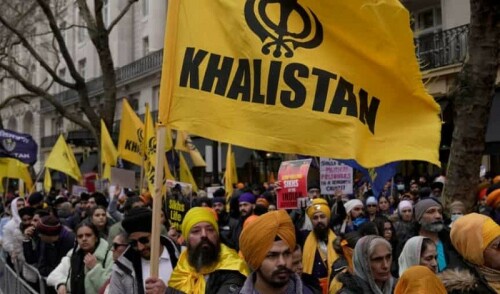PAKISTANI officialdom has had a field day in the aftermath of Canadian Prime Minster Justin Trudeau’s bombshell statement about the Indian government’s alleged involvement in the assassination of a Sikh nationalist on Canadian soil.
The Pakistani state has been targeted for years by persistent Indian accusations of aiding and abetting ‘terrorism’, so it is hardly surprising that the Foreign Office and a host of mainstream politicians look at this as an opportunity to give New Delhi a taste of its own medicine.
The episode has triggered a diplomatic crisis which has engulfed many global powers. But beyond the rhetoric lurks an undeniable truth about the supposedly liberal world order: the world system and nation state that constitute its most notable pillar, are neither democratic nor do they abide by any of their own liberal claims.
Virtually all states engage in clandestine, often violent activity against dissidents both within their own borders and far beyond them. No state owns up to these activities publicly — look at the epidemic of enforced disappearances in this country, which will be one of the biggest challenges to the credentials of our new chief justice — but it is an open secret that intel agencies exist for precisely such purposes.
India prides itself as the world’s largest democracy, which is true inasmuch as it routinely conducts elections involving hundreds of millions of people. But this is only one measure of its ‘democratic’ credentials. Even if one leaves aside the Indian state’s machinations against Khalistan separatists in faraway places like Canada, its treatment of peripheries like Assam, Nagaland, Manipur and Kashmir is most accurately described as colonial statecraft.
We should note the creeping totalitarianism of political life.
Then there are the Western ‘democracies’ which have historically presided over the ‘liberal’ world order. Top of the list is the US, which came into being as a country recognising only white European settlers as citizens (even white European women were disenfranchised for long). African slavery was legal and indigenous populations exterminated, with the few that remained banished to ‘reservations’.
For the best part of a century, the US has boasted the world’s most powerful intelligence agency, the CIA, which has overthrown governments and killed dissidents with impunity.
The US carried on from where ‘old’ European powers left off. Gentler states like Canada, too, have gory histories, even if they have recently relaxed immigration policies to grant citizenship to dissidents from other countries, including Sikh separatists from India.
A dispassionate reading of Pakistan’s history throws up similarly uncomfortable facts about the state’s desire to extract resources, control populations and stamp out dissent. Our own establishment has weaponised religion on the one hand and suppressed ethnic nationalisms on the other (the Bengali and Baloch cases are noteworthy).
The point is that very few states today can claim to occupy the moral high ground on such matters. The deployment of the language of ‘terrorism’ to decry (sometimes violent) political movements has become both commonplace and increasingly arbitrary, with ordinary people generally unable to see beyond their own state’s selective ideological claims.
What we should all be paying attention to, no matter which nation state we were born in, is the creeping totalitarianism of political life in general. At the end of the Cold War, we were told that liberal democracy had taken root globally and that ‘free’ markets would herald political freedoms everywhere.
Instead, the capitalist world system has trapped more and more people and natural ecosystems in its destructive web, while the contemporary state arrogates more power in the name of often nebulous ‘terrorist’ threats. This is not just through legal instrumentalities or purely coercive power; it is increasingly motored by digital technology and surveillance capacities that intelligence apparatuses from even a few decades ago couldn’t have imagined.
Meanwhile, long-standing political grievances fester, leading to more dissidents and disaffected movements which sometimes turn to other states for support. There was a time in the 20th century when an alternative politics — led by the Soviet Union — challenged the liberal world order; but today, there is no silver lining. Indeed, only a few days after Trudeau made his speech about the Modi regime’s involvement in the murder of Hardeep Singh Nijjar, he led a standing ovation for an ex-Nazi in the Canadian parliament.
In the final analysis, there is no reason for Pakistanis or anyone else to be gloating vis-à-vis India. We should, instead, once again imagine an internationalist politics that goes well beyond the failed liberal world order and its hollow rhetoric.
The writer teaches at Quaid-i-Azam University, Islamabad.
Published in Dawn, September 29th, 2023














































Dear visitor, the comments section is undergoing an overhaul and will return soon.